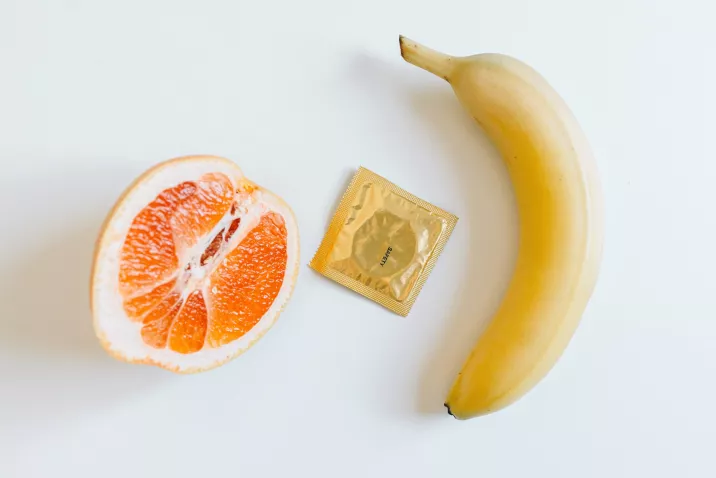Do you know what lube is? Ever wanted to try it? "Lube" or lubricant is a popular aid to sexual intimacy, but many people are misinformed about it and fearful of trying it.
Beat Presenter Michelle asked Irish sex educators, as well as people from the South East, about their knowledge of lube.
What is Lube?
Personal lubricant, or "lube" acts as an aid to sexual intimacy, protects against STIs and even increases the chances of an orgasm. “When we talk about personal lubricant, it's basically a liquid or gel used to prevent unwanted friction during sex," says Grace Alice, Sex & Intimacy Educator. Whether it's for partnered sex or solo sex, lubricant does the same thing as other types of lubricant-like the kind you get for squeaky doors! But this is for our bodies."
Lubricant is not only used for coupled sex but can also be used personally for masturbation. It can be used with a sex toy, or simply applied to any body part that feels good. There is no right or wrong amount of lube, and it’s very important for some people to reduce the risk of pain during sexual activity.

Photo by Dainis Graveris
Preventing Pain
"When I first had sex, it was painful, says Dee from Waterford city. I remember people warning me too that it was going to be sore the first time. I actually didn't really enjoy sex until I had my second long-term boyfriend, and he went down on me. After that, I learned that I kind of needed that to happen before sex or it was going to be too sore."
Grace Alice says that this experience is very common, but not often talked about. “It is not unusual for women to find it challenging to become sufficiently lubricated, or “get wet”. I compare men and women as like a microwave to an oven" says Grace. “For a person with a penis, they might get an erection very quickly, but for women, lubrication and arousal can take a while. That's where artificial lubricant can be so handy.”
Grace Alice is passionate about promoting lubricants as an aid to sexual well-being. “I'm always harping on about lube, nearly every client I work with, I'll mention lube at some point. Also, a lot of people I know will use lube every time they are intimate, it's just part of their routine.”

Grace Alice, sexual health expert
Get the Right Lube for You
While lubricant is helpful for a variety of reasons, there are many different types, and you need to be careful about using the right product for the right activity.
Monica, from Waterford says that she used lubricant before, and it was not a pleasant experience. “I used lube with a guy and he put it on his penis and he ended up crying. He went straight to the bathroom and he jumped straight into the shower!"
It's very important to do your homework before buying a lubricant so you find one that is compatible with your body and your needs. “There's going to be dodgy stuff out there-says Grace Alice, “so you do need to do your research.
Say with flavoured lubes, first of all, it's best not to use those for any kind of sex except oral sex. They contain sugar and flavourings, and putting that inside a vagina or anal passage can cause irritation-especially in the vagina where it can cause thrush or UTIs.
"In terms of ingredients, there are some that are best to avoid like glucose, parabens, dyes, colourings, glitter, glycerin, and petroleum. It is more advisable to look for more organic materials. It is trial and error however, someone could use a brand and find they have no reaction. I myself prefer a lubricant that is water-based and glycerin-free, paraben free and vegan.” It is also important to note that some lubricants can have a negative impact on fertility. “If you are trying to conceive, do look for fertility-friendly lubes,” says Grace "as a lot of ingredients in lube can interfere or act as a spermicide and people might not be aware of that”.
If you’re trying out lube for the first time, a water-based lubricant like Sliquid or Hathor is a safe option.
All bodies are different, and it can be fun to experiment with products to find what suits you best. Although it can be tempting, it is not a good idea to use household items like Vaseline or moisturiser as a replacement for branded lubricant. These products are not designed for internal use and can irritate the vaginal or anal passages, trapping bacteria and causing infection. They can also erode condoms and result in STI transmission or unwanted pregnancy. Use your lube wisely!
Michelle Heffernan discusses lube and more issues in sexual health in "Let's Talk About Gnéas", a seven-part radio series about the Irish and sex. "Let's Talk About Gnéas"is available here or on Spotify /Apple Podcasts






